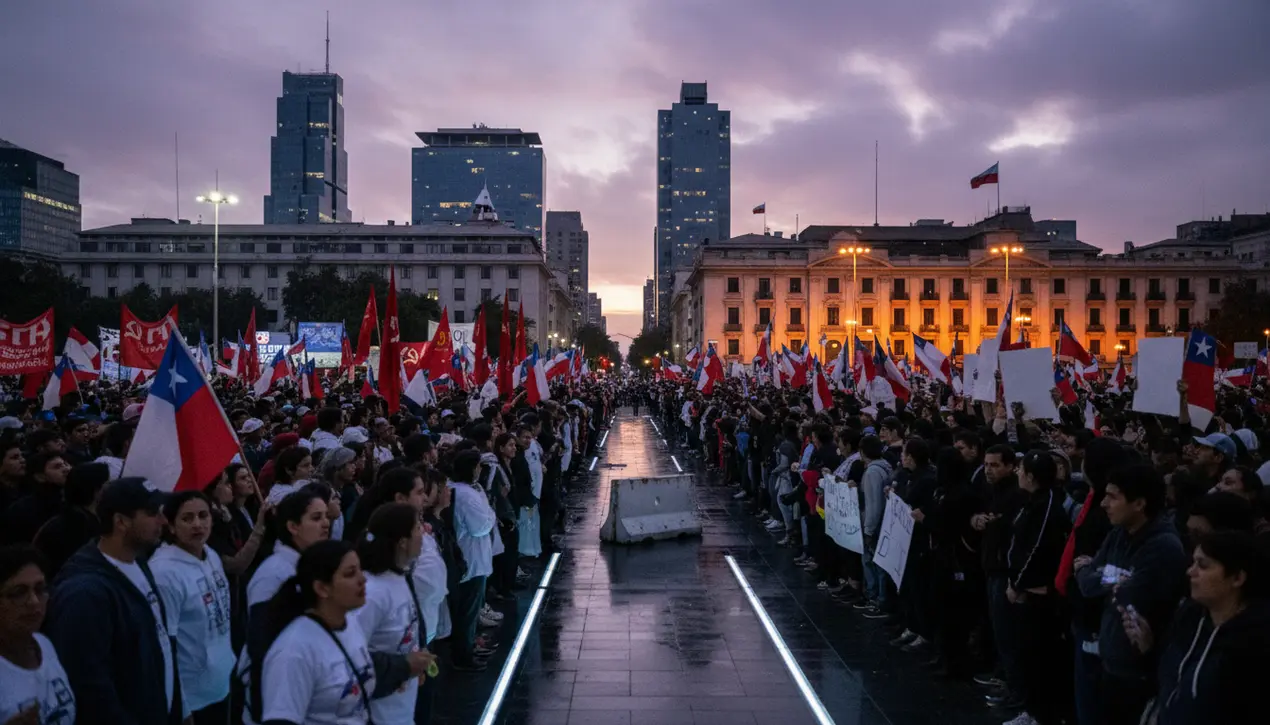- News
- elections
- Chile's Presidential Runoff Sets Stage for Historic Clash Between Far-Right and Communist Visions

PoliticselectionsPresidential Elections
Chile's Presidential Runoff Sets Stage for Historic Clash Between Far-Right and Communist Visions
RO
Robert Hayes
2 days ago7 min read4 comments
Chile stands at a political crossroads as the nation prepares for a presidential runoff that represents one of the most stark ideological divides since the country's return to democracy. Communist candidate Jeannette Jara, who led Sunday's first-round voting with nearly 27% support, will face far-right contender José Antonio Kast in a December 19th showdown that will determine Chile's direction for the coming years.The contest has drawn comparisons to historical Cold War divisions, reflecting the deep fractures in Chilean society that emerged from the 2019 social uprising. Jara's strong performance signals the enduring influence of the protest movement that demanded fundamental changes to Chile's Pinochet-era economic model.Her platform calls for expanding social programs, increasing taxes on wealthiest citizens, and strengthening government's economic role—proposals that appeal to voters frustrated by persistent inequality despite economic growth. Meanwhile, Kast has mobilized conservative voters with his emphasis on public security, economic freedom, and opposition to recent progressive social reforms.His advancement demonstrates a significant backlash against rapid social changes and indicates substantial support for traditional values and stronger law enforcement. The runoff's outcome now depends on nearly half of voters who supported moderate candidates in the initial round, forcing both center-left and center-right constituencies to choose between two sharply contrasting visions.This polarization has been amplified by the ongoing constitutional convention process, itself a product of the 2019 protests, with the proposed new constitution likely to become a central campaign issue. The election's international implications are substantial, as a Jara victory would align Chile more closely with left-leaning governments across Latin America, while a Kast win would strengthen ties with right-wing allies and potentially reshape the country's relationship with China.The December vote will serve as a crucial indicator of regional political trends, testing whether leftist governance maintains momentum or if conservative movements are gaining strength. Chilean voters now face a decision that goes beyond conventional policy differences, confronting a fundamental choice about their nation's identity, economic structure, and global positioning.
#Chile
#presidential election
#runoff
#far-right
#communist
#polarization
#featured
Stay Informed. Act Smarter.
Get weekly highlights, major headlines, and expert insights — then put your knowledge to work in our live prediction markets.
Related News
Comments
Loading comments...
© 2025 Outpoll Service LTD. All rights reserved.